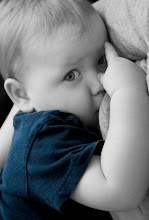Press twisted my words, says academic in breast-milk row
Mothers who do not breastfeed thought they had a new ally. But he was misinterpreted, he says
By Susie Mesure
Sunday, 2 August 2009
In World Breastfeeding Week, mothers are urged to persevere, for the sake of their baby's health.
Few topics are more emotive than breastfeeding, that rite of passage into motherhood. Witness the furore that erupted over a story purporting to rubbish claims that breast milk provided newborns with a protective shield against an array of illnesses or allergies.
Mums everywhere entrenched their positions on either side of the breast-milk divide when they leapt on the alleged assertion made by a leading professor of paediatrics and breastfeeding adviser to the World Health Organisation and Unicef. Michael Kramer was reported as saying that much of the evidence used to persuade mothers to breastfeed was either wrong or out of date.
Those in the anti camp were particularly ecstatic. "It was all I could do not to dance around the room whooping with joy.... Thanks for vindicating all the mums who dared to challenge the sanctimonious breastfeeding orthodoxy in 'discussion' forums," wrote TheJasMonster on Mumsnet after reading the article in The Times. Conversely, those pro-breastfeeding, from new mums trying to do the right thing to anti-formula campaigners such as Baby Milk Action, were left devastated that someone as respected as Kramer, who has studied evidence on breastfeeding since 1978, could perform such a massive U-turn. Especially on the eve of World Breastfeeding Week, which kicked off yesterday.
Or did he? Not a bit of it, says the professor, who is renowned for a groundbreaking study that found an IQ advantage to breastfeeding even after you'd stripped out the natural advantages that being the sort of mum who breastfeeds would give her child. Rather, he is spitting tacks at how his comments had been so "grossly misrepresented" for the second time in almost as many months. (The first was in the respected American magazine, The Atlantic, in an article entitled "The case against breastfeeding", which ignited the original media storm on the subject.)
"Journalists certainly have the right to express their own opinions, but not to misquote experts they choose to interview in order to support those opinions. That sort of sensationalist journalist would not surprise me from the tabloids, but I had expected better from The Atlantic and The Times," Kramer said last night.
The Times quoted Kramer, who is based at McGill University, Montreal, as saying there was "very little evidence" breastfeeding reduces the risk of a range of diseases from leukaemia to heart disease. Yet, what he actually said was: "The existing evidence suggests that breastfeeding may protect against the risk of leukaemia, lymphoma, inflammatory bowel disease, type 1 diabetes, heart disease and blood pressure." All he did concede was that we need "more and better studies to pursue these links", a common cry from academics lacking in funding.
As for the article merely casting him "in the camp that believes that breastfeeding will turn out to have a slight effect on brain development", well, that hardly squared with his life's work, he said yesterday. "There is an IQ advantage to breastfeeding by as much as three or four points. It's not the difference between Einstein and a mental retard at an individual level, but it means having a smarter population on average, fewer children with school difficulties, and more gifted children."
He added: "There really isn't any controversy about which mode of feeding is more beneficial for the baby and the mother, but when you read the article in The Times it sounds like there is." Furthermore, he points out: "I'm not aware of any studies that have observed any health benefits of formula feeding. That's important, and any mother weighing the benefits of breastfeeding vs formula feeding needs to know that."
His only note of caution, which was flipped on its head by both publications, was that breastfeeding advocates don't need "to overstate their case for issues that are more controversial", such as the link between breastfeeding and protection against obesity, allergies and asthma. "Public health bodies don't have to exaggerate the benefits in order to be very comfortable about supporting breastfeeding," he added.
Some solace for campaigners such as the WHO, keen to use World Breastfeeding Week to increase global breastfeeding rates and save up to 1.3 million children's lives a year. Worldwide, fewer than 40 per cent of mums breastfeed exclusively for the first six months of their baby's life, as recommended: in the UK only 3 per cent are still breastfeeding exclusively at five months.
Subscribe to:
Post Comments (Atom)

No comments:
Post a Comment